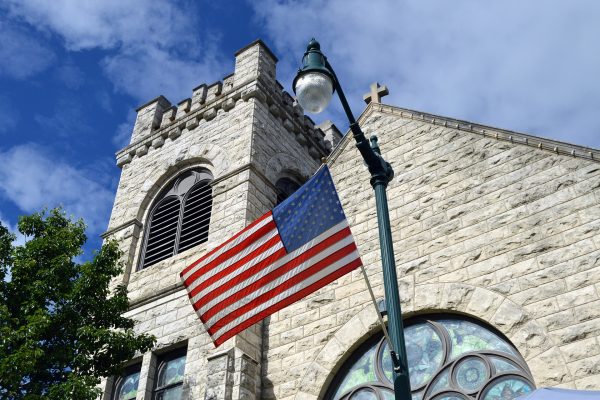
For many Christian Americans, discussions of structural racism amount to attacks on America – and its Christian heritage – itself. Using survey data collected during the early months of the pandemic and through the summer of “racial reckoning” in 2020, Samuel Perry, Ryon Cobb, Andrew Whitehead, and Joshua Grubbs show how “White Christian nationalism” contributes to what they call a “perception gap” on racial issues.
Perry and colleagues measure Americans’ attitudes on racial discrimination using four sets of survey data from 2019-2020. They also assess respondents’ approval of Christian nationalism, an ideology that fuses Christianity and American civic life. Champions of Christian nationalism seek to define America as a divinely-inspired Christian nation and advocate enshrining Christianity and “Judeo-Christian heritage” in school curricula, in the public sphere, and in government.
The authors find that White proponents of Christian nationalism tend to minimize anti-Black discrimination and deny the presence of systemic racism in policing. The surveys – designed to capture shifting opinions during the developments of 2020 – revealed that supporters of Christian nationalism were more likely to believe that the men who murdered Ahmaud Arbery were “not necessarily racist” and acted within their right as vigilantes.Unlike whites who accept Christian nationalism, Black respondents recognize who affirmed the ideology did so while recognizing racial discrimination against Black Americans. Whereas White supporters of Christian nationalism look at American history without recognizing past violence and atrocity against minorities and people of color, Black Americans who affirm Christian Nationalism see it as a call to action to address present-day inequalities and injustices.
By depicting key elements of American history with a religious gloss that overlooks racial problems, White Christian nationalism and its ideological commitments contribute to a “perception gap” on issues of racism and systemic discrimination.

Comments